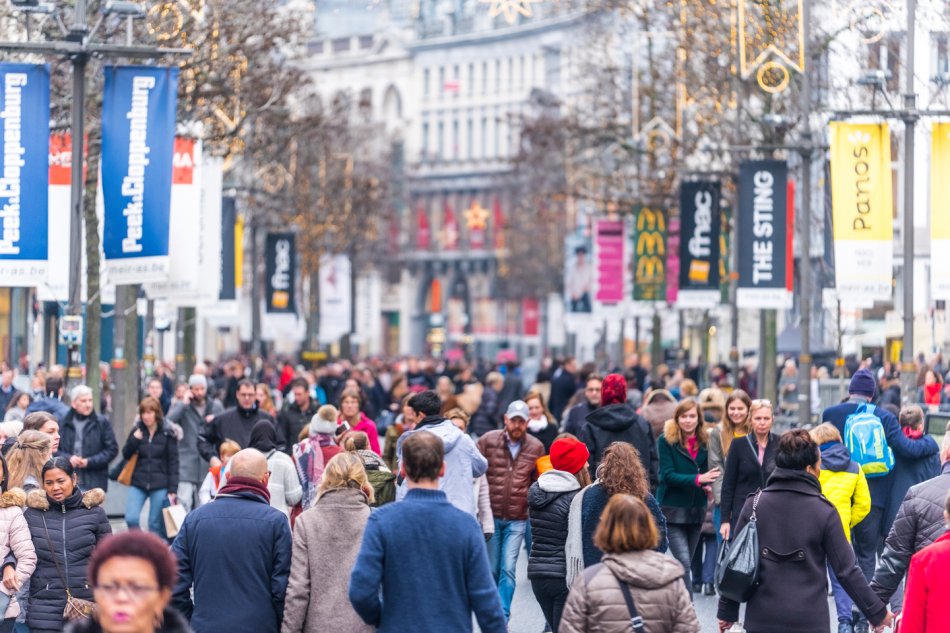While Belgium currently seems to be on track for the most optimistic Omicron scenario, biostatistician Niel Hens (UHasselt/UAntwerp) stressed the need to remain cautious for a bit longer.
The Omicron variant is causing a large wave of infections, but the impact on hospital admissions and severe disease appears to be limited – a reason for quiet optimism, Hens said on Flemish radio on Tuesday.
"We have tried to predict the course of this wave in different scenarios. It seems that in terms of hospital admissions and intensive care, we are in the most favourable scenario," he said, echoing virologist Steven Van Gucht's restrained optimism.
For Hens, there are some possible explanations based on various factors, ranging from Belgium's high vaccination and booster coverage to the population's willingness to limit their contacts and continue to follow the measures.
In the meantime, most patients in intensive care units are infected with the Delta variant. And although regular hospital admissions are up slightly, "that is not entirely unexpected given the very strong increase in the number of infections."
Related News
- 'Never before has so much coronavirus circulated,' says Van Gucht
- Omicron wave 'comes closer to flu,' says Van Ranst
- 'We can be hopeful about the future,' says Van Gucht
"Delta has a greater burden of disease than Omicron. That in itself is positive, but it raises the question of how Delta and Omicron will continue to play out," Hens said. "Is Omicron going to take the upper hand completely or will Delta remain dormant and re-emerge?"
Infections are still rising sharply (an increase of 33% compared to last week), but the models are not based on the infection rates, partly because the test strategies have changed several times.
"[The infection rates] are difficult to interpret, but we do keep an eye on them," said Hens, adding that he hopes to see a bend soon. "We are a bit behind the UK, where the peak has now passed. For us, this is a scenario that could also provide relief in a few weeks' time."
Evolving from pandemic to endemic
Last week, Spain announced that it is considering treating the coronavirus as an endemic soon. In the case of an endemic, the disease is dormant in the background, with fewer mass outbreaks (for comparison, flu is sometimes endemic).
Virologist Marc Van Ranst stated last week that the epidemic was slowly heading towards "something that comes closer to flu" as well, but was also quick not to downplay the severity of flu, saying that people with flu still end up in hospital and die.
But for Hens, it is still too early for such statements, "but we are moving incrementally [in the direction of an endemic]. We will still see peaks, but we will see that hospital admissions will be lower. That is what we saw with previous pandemics and what we can expect now too."
On Friday, the Consultative Committee will meet again, and the ministers will likely introduce the coronavirus barometer to offer some predictability in terms of measures depending on the evolution of the epidemiological situation.
"It is up to politicians to make decisions. But as far as relaxations are concerned, I would say that the timing is very important," Hens said. "I would still opt for caution for a while, so we can move towards relaxations in the foreseeable future."
Additionally, if the Committee wants to implement the coronavirus barometer, it must also be prepared to adjust this if new variants emerge, Hens stressed. "A barometer is a guideline to harmonise actions and indicate a clear direction, but it must not be set in stone."

